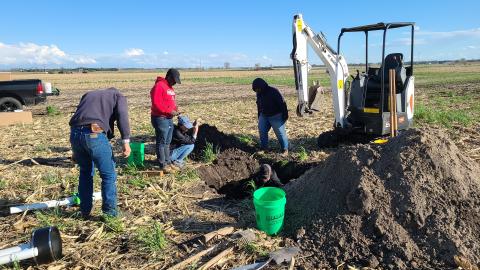Northeast Nebraska is unique in many ways. One of those is the first groundwater- focused management plan in the nation to address nonpoint source pollution.
The Bazile Groundwater Management Area (BGMA), as it’s known, emerged from a partnership among four area Natural Resources Districts and the Nebraska Department of Environment and Energy who shared the goal of reducing rising nitrate levels in communities and domestic drinking wells. This is significant since BGMA residents rely on groundwater for drinking water and elevated nitrate levels can be harmful to human health and costly for small communities to treat.
In 2019, NWC, through funding from the Nebraska Environmental Trust, helped establish local demonstration farms that model different agricultural management practices to reduce nitrogen leaching. The three farms — diverse cropping rotations, soil health and nitrogen inhibitors — provided opportunities for educational outreach at the BGMA Field Day in September 2021. The in-person engagement was complemented by a virtual winter meeting series featuring Nebraska faculty, postdocs and external scholars.
Additionally, NWC is invigorating water quality research and education in this area. In the classroom, a citizen science project is empowering high school students with water quality awareness and science literacy through groundwater sampling and data collection. In the field, WSL Director Dr. Dan Snow and collaborators launched a project in spring 2021 titled “Novel Approaches for Controlling Nitrate Leaching and Protecting Nebraska Groundwater.” The research is injecting mulch into the subsoil to evaluate its potential to absorb and remove excess nitrate.

